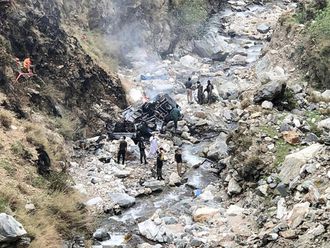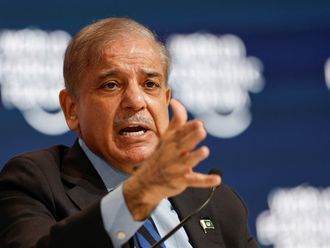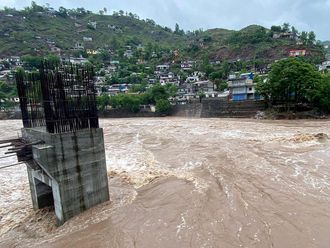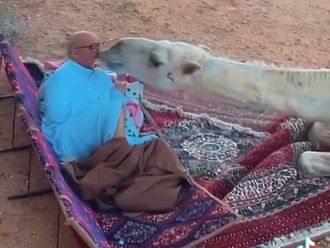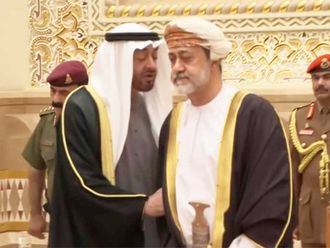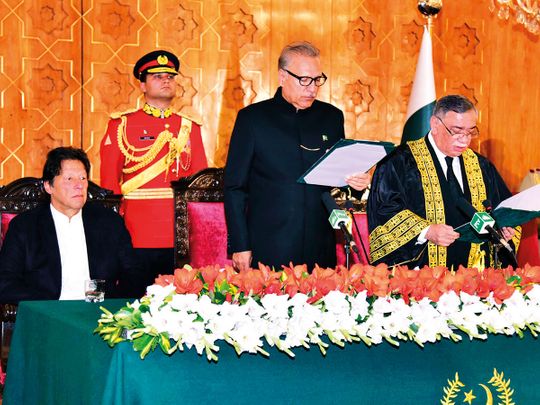
ISLAMABAD: Pakistan’s new Chief Justice Asif Saeed Khan Khosa is known to be a “fast-track” judge, one who believes in the quick disposal of cases unless there is some strong legal reason to adjourn hearing for another date.
In legal circles, the popular joke is: “In Justice Khosa’s court, a case can be adjourned for two reasons: either the counsel pleading it passes away or the judge hearing it breathes his last.”
His determination to end frivolous petitions and dispose of the backlog of pending cases — some 1.9 million cases are pending before courts of the country — was reflected in his address to the Full Court Reference given in honour of the former Chief Justice Mian Saqib Nisar on the eve of the former’s superannuation last week: “I would also like to build some dams, a dam against undue and unnecessary delays in judicial determination of cases, a dam against frivolous litigation and a dam against fake witnesses and false testimonies and would also try to retire a debt, the debt of pending cases, which must be decided at the earliest possible,” Justice Khosa had said.
In his address, Justice Khosa had also suggested structural and systemic changes in judicial system to minimise litigation, eliminate unnecessary delays and rationalise the workload.
“The time has also come when the judicial system as a whole needs to be redesigned or restructured and made simple and effective,” he had said.
Besides being a judge of deep judicial insight, Justice Khosa is also known as a keen reader of literature and prolific writer.
His long erudite judgements speak of his rich literary taste as he keeps pinning some quotes, stanzas or sayings in his verdicts that give the reader the impression as if he were reading some work of literature.
Justice Khosa’s dissenting note in Supreme Court’s 3-2 split verdict on April 20, 2017 that had temporarily given a relief to former prime minister Nawaz Sharif and his family in Panama Papers Leaks started with a reference to Mario Puzo’s popular novel The Godfather (1969): “Behind every great fortune there is a crime.” Even before that in a disqualification handed to former prime minister Syed Yousuf Raza Gilani in 2012, Justice Khosa referred to Lebanese poet Kahlil Gibran’s classic poem ‘Pity The Nation’.
He was also on the bench hearing Asia Bibi’s case, a Christian woman condemned to death for committing blasphemy, and his remarks attracted the public attention as in his verdict acquitting Asia, Justice Khosa remarked she “appeared to be a person, in the words of Shakespeare’s King Lear, ‘more sinned against than sinning’.”
Though his remarks on military courts did not go well with the high command of the armed forces and prompted the Inter-Services Public Relations spokesperson to tweet that the military courts were doing a great service delivering quick justice and were formed as result of enactment by the Parliament, his offer for ‘intra-institution dialogue’ for framing a charter of governance has been welcomed by all the political parties and their leadership.
Besides, Justice Khosa has also indicated he, unlike his predecessor, would go slow on suo motu cases. Justice Saqib Nisar had taken more than 40 suo motu cases during his two-year term as top judge of the country. On the contrary, Justice Khosa made it clear he would resort to suo motu only when there was no other way left.
Profile:
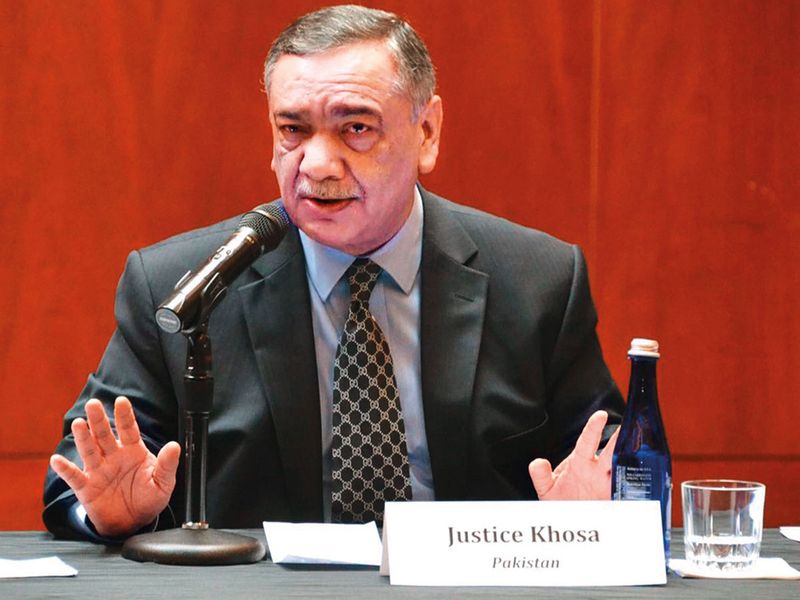
Born on December 21, 1954 in Dera Ghazi Khan, Justice Khosa is an expert on criminal law. A brilliant student more than five decades ago, the 64-year-old top court judge secured the fifth position in his matriculation exams in 1969 from the Multan Board.
In 1973, he secured first position in Bachelor’s exams from Government College Lahore and later did his Masters in English literature in 1975.
He attended the Queens’ College at the University of Cambridge, obtaining a master’s degree in law with a specialisation in Public International Law.
Barrister Khosa was then appointed as a judge at the Lahore High Court (LHC) in May 1998.
When on November 3, 2007, former military ruler Pervez Musharraf while declaring emergency suspended the Constitution and demanded the judges of the superior judiciary to retake oaths under the Provisional Constitutional Order (PCO), Justice Khosa refused to abide by the presidential order.
Consequently, he was sacked from the office among other judges of high courts and the Supreme Court (SC). He was restored to his prior position as a high court judge on August 18, 2008, in the wake of an unprecedented mass movement to restore the superior judges sacked for not retaking their oaths under the PCO.
Married with two daughters and four grandchildren, Justice Khosa’s brothers are former bureaucrat Nasir Mahmood Khosa and former Balochistan Inspector General of police (IGP) Tariq Masood Khosa.
Justice Khosa was sworn in as a Supreme Court judge in February 2010. His tenure will end on December 20, 2019.
Author of several books:
He has authored three books, Heeding the Constitution, Constitutional Apologues and Judging with Passion. He had edited and compiled The Constitution of Pakistan, 1973 and is currently working on a fourth book, Breaking New Ground. Justice Khosa is also a member of the Commonwealth Judicial Education Institute, representing Pakistan.
Landmark decisions:
Condemning former-prime minister Nawaz Sharif in Panama Papers case
Justice Asif Saeed Khosa while heading 5-member bench hearing Panama Papers leaks case in 2017 held Sharif responsible for accumulating huge wealth and declared him disqualified. Though in minority at that time (3:2), yet it ultimately led to former premiere’s disqualification.
Disqualification of ex-prime minister Gilani
He was also on the seven-member larger bench of the Supreme Court that heard the contempt of court proceedings against Gilani and announced his disqualification in 2012.
Upholding verdict against Mumtaz Qadri
Justice Khosa also headed the bench that upheld the conviction of Mumtaz Qadri in 2015 for the murder of former Punjab governor Salman Taseer.
Asia Bibi’s acquittal
He was also part of the bench headed by the then Chief Justice Mian Saqib Nisar that in October 2018 overturned a Lahore High Court judgement against Asia Bibi, acquitting her of blasphemy charges.



